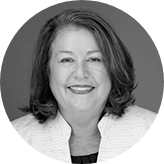As our industry advances, three issues consistently top the list of advisors’ priorities.
Adapting to change is part of any profession. Part of our mission at FlexShares is to help advisors assess and address the changes that are most likely to impact their business models and their livelihoods over the next decade: the acceleration of digital adoption, the challenges of regulatory change, the necessity of achieving scalability, the emergence of sustainable investing, and the demands of an evolving client base.
Michelle Lynn, Global Head of Data Science and Insights at Bloomberg Media Organization, recently spoke with The Flexible Advisor about the state of the advisor landscape. Consistent with what we've learned in our own studies, Bloomberg’s research underscores three trends likely to influence the health and longevity of an advisory practice in today’s environment.
KEY TAKEAWAYS
- Financial acumen is fundamental, but not enough.
- The advisory client base is changing and will be increasingly diverse.
- An overextended advisor is a less effective advisor.
Soft skills are essential
While financial acumen is fundamental, it may no longer be enough. “Portfolio construction and the ability to generate consistent results are always important,” Lynn says, “but advisors are leaning into soft skills to distinguish themselves. They recognize the need to go deeper than understanding a client’s needs, appetite for risk, and return expectations. It's about being as transparent as possible, simplifying complex financial concepts, and strengthening their relationships."
These are confusing times for many investors and, as Lynn explains, this allows an advisor to demonstrate their unique value. “Volatility, uncertainty, and down markets are opportunities to reassure, support, explain and guide. I think advisors who lean into those “soft” skills tend to benefit in terms of retention, referrals, and attracting new business.”
Advisors are leaning into soft skills to distinguish themselves.
— Michelle Lynn
Diversity will become increasingly important
Forbes, in a June 2022 article, urged companies to “recognize the full impact that Millennials and Gen Z have on their businesses, from both a talent perspective and a consumer aspect.”1 This certainly holds true for financial professionals.
The advisory client base is becoming increasingly diverse and that is going to continue. Millennials — the most ethnically and culturally diverse generational cohort ever in the U.S. — now account for the lions’ share of our workforce. Gen Z, equally if not more diverse, is coming up quick. Yet, despite some incremental progress, our industry remains largely homogenous. According to Lynn, “Generally speaking, the advisors we surveyed don't believe their firms have made enough of an effort in recruiting from more diverse backgrounds. If you’re a young, successful woman of color looking for an advisor, you will be hard pressed to find one who looks like you or who understands your needs more deeply. I think that’s a real mistake if you hope to monetize your business and keep it growing.”
Work/life balance is not just a feel-good concept
One of the themes amplified by the COVID phenomenon is the desire for work/life balance. Many financial advisors are struggling to achieve that objective. Additionally, new talent is often seeking that work/life balance, which can make the recruitment process more challenging.
A primary factor is that clients are more demanding. As Lynn puts it: “It started with investing, then planning, and now it's about experience and life and life planning. I think it could be overwhelming. We know that a lot of people get into advising for work-life balance. I'm wondering if, similar to all of us, they still have that work-life balance.”
An overextended advisor is a less effective (not to mention unsatisfied) advisor. What’s more, the pressure is simply not sustainable over the long term. FlexShares’ 12-year research study, The Race to Scalability, sheds light on the ways advisors are scaling their practices. For many, that includes taking advantage of outsourced solutions, whether that's outsourcing investment management functions, compliance, or marketing, to give them more time.
To access more practice management or market and investment product investment ideas visit FlexShares.com.
Access The FULL Podcast
You can access the full discussion on The Flexible Advisor, wherever you get your podcasts.

1.Timmes, M. (n.d.). Council Post: Millennials And Gen Z: Now Is The Time To Reshape Businesses To Harness Their Power. Forbes. Retrieved January 17, 2023, from https://www.forbes.com/sites/forbescoachescouncil/2022/06/27/millennials-and-gen-z-now-is-the-time-to-reshape-businesses-to-harness-their-power/?sh=7986299b5c98
.jpg)
